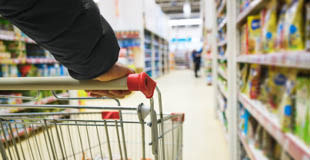Subsidiaries of Restaurant Brands International
- Burger King
- Popeyes
- Tim Hortons
Key Findings
- While Restaurant Brands International (RBI), the parent company of Burger King, Popeyes, and Tim Hortons, has no significant public-facing commitments to address the safety of indirect food additives that may be in food contact materials, the company does receive credit for restricting various chemicals of high concern (CHCs) in promotional toys, for restricting bisphenol A (BPA) in food-contact materials, and for setting a goal to eliminate expanded polystyrene foam in all food packaging globally by 2021.
Recommendations for Restaurant Brands International
- RBI can make progress by developing a public written safer chemicals policy covering any toxic indirect food additives that may be in food contact materials, addressing at least all bisphenols, per- and polyfluoroalkyl substances (PFAS), and phthalates.
- We urge the company to set public quantifiable goals with clear timelines to eliminate and safely replace other plastics of environmental health concern in its packaging and any toxic indirect food additives that may be in food contact materials. RBI should also publicly disclose the alternatives used to replace the CHCs after eliminating them.
- The company should become a signatory to the Chemical Footprint Project and pilot it with key private label suppliers.
Grade History
Raise your voice! Send a message to the retailers who earned an F to protect their customers!
Take Action
How does Restaurant Brands International compare to its competitors?
Analysis of Restaurant Brands International
Oversight: Established management responsibilities and incentives
Disclosure: Requires suppliers to report use of chemicals in products to retailer
Action: Reduced or eliminated chemicals of high concern (CHCs) or plastics of environmental health concern (PEHCs) within the last three years
Safer Alternatives: Evaluates safer alternatives, avoids regrettable substitutes
Transparency: Demonstrates a commitment to transparency and public disclosure
Third-party Standards: Promotes credible third-party standards for safer products
Extra Credit:
Joint Announcement: Public commitment demonstrated through joint announcement
Continuous Improvement: Shows continuous improvement by steadily expanding safer chemicals policy
Collaboration: Actively participates in collaborative process to promote safer chemicals
Impact Investment: Investing financial resources into independent research into safer alternatives and/or green chemistry solutions




